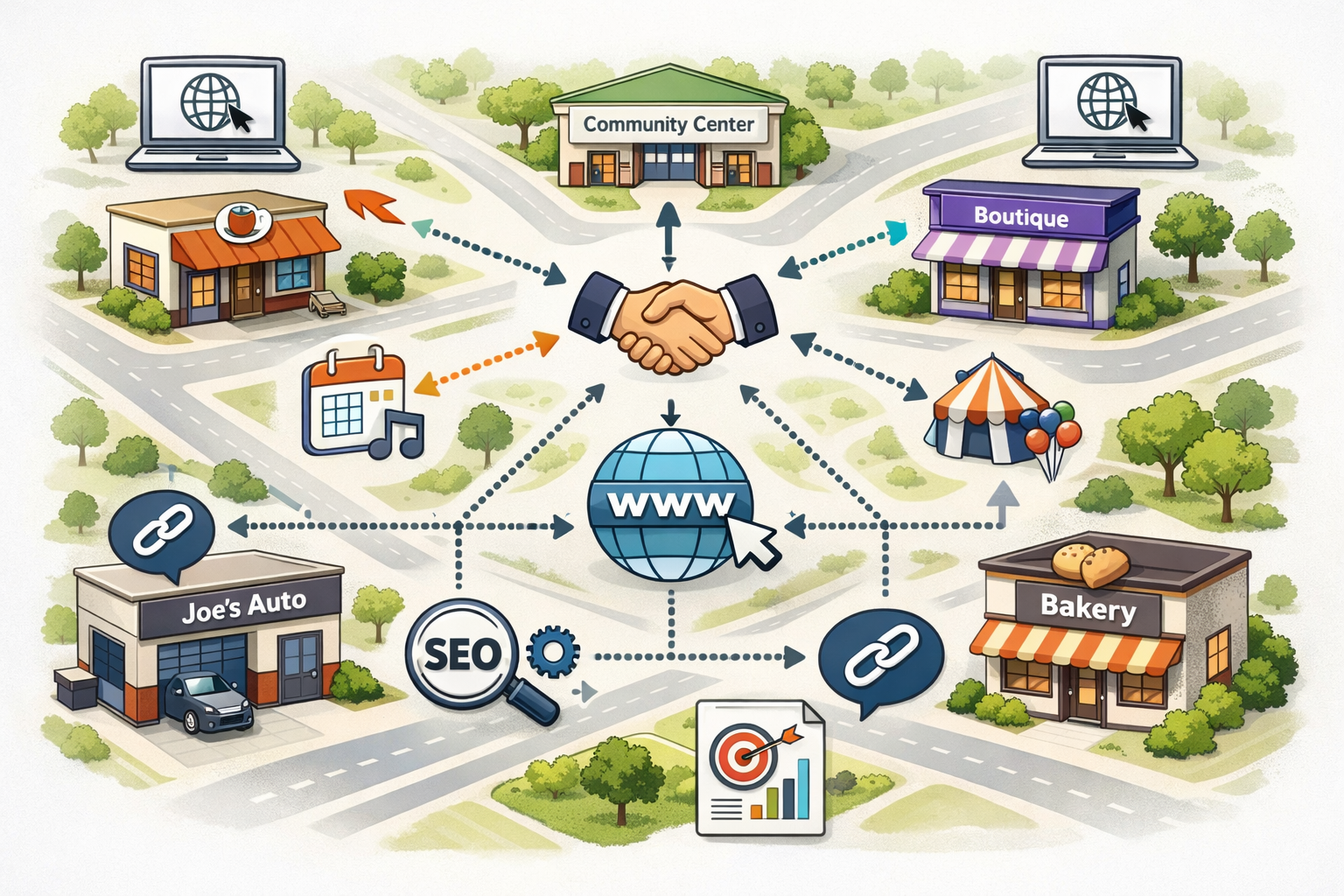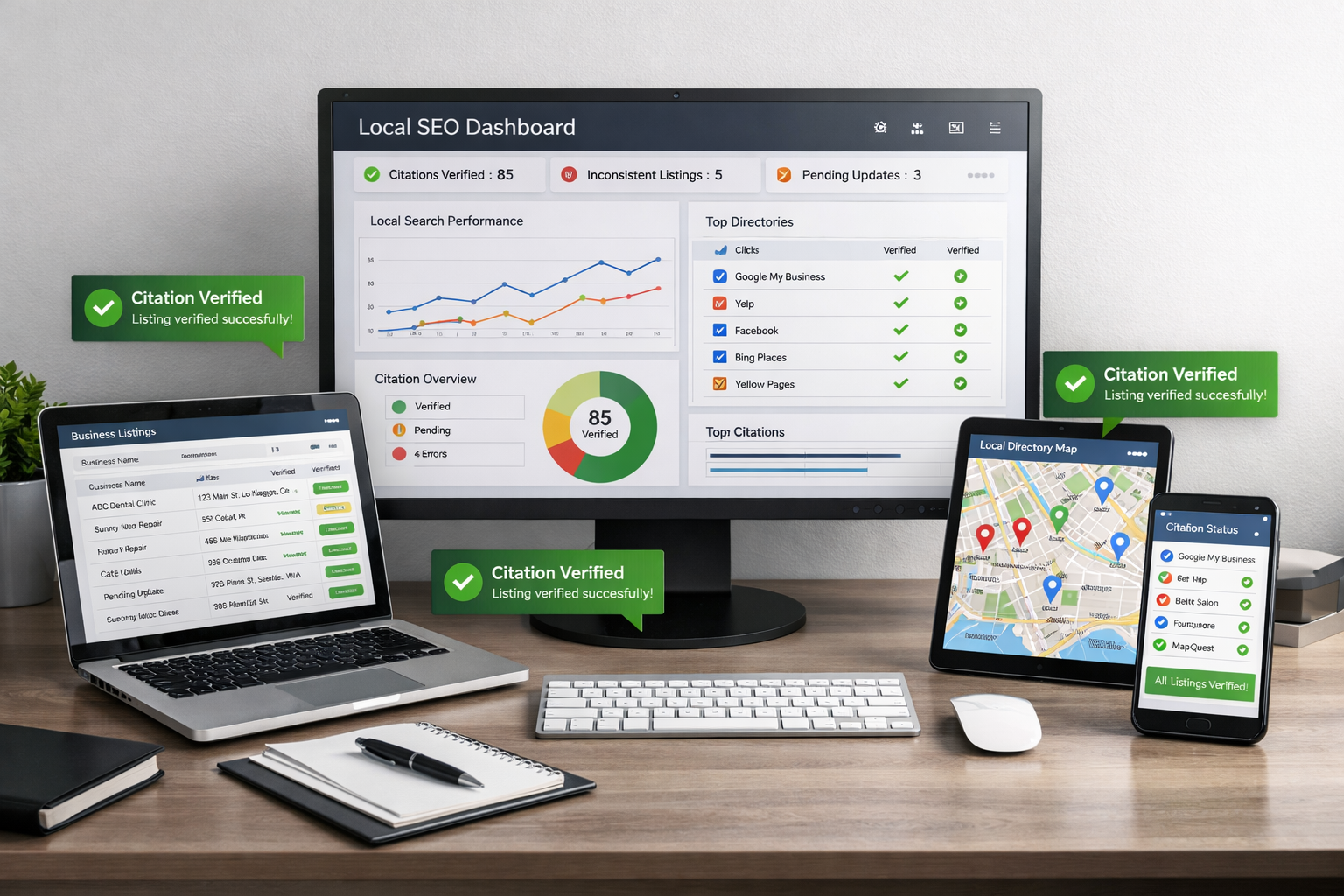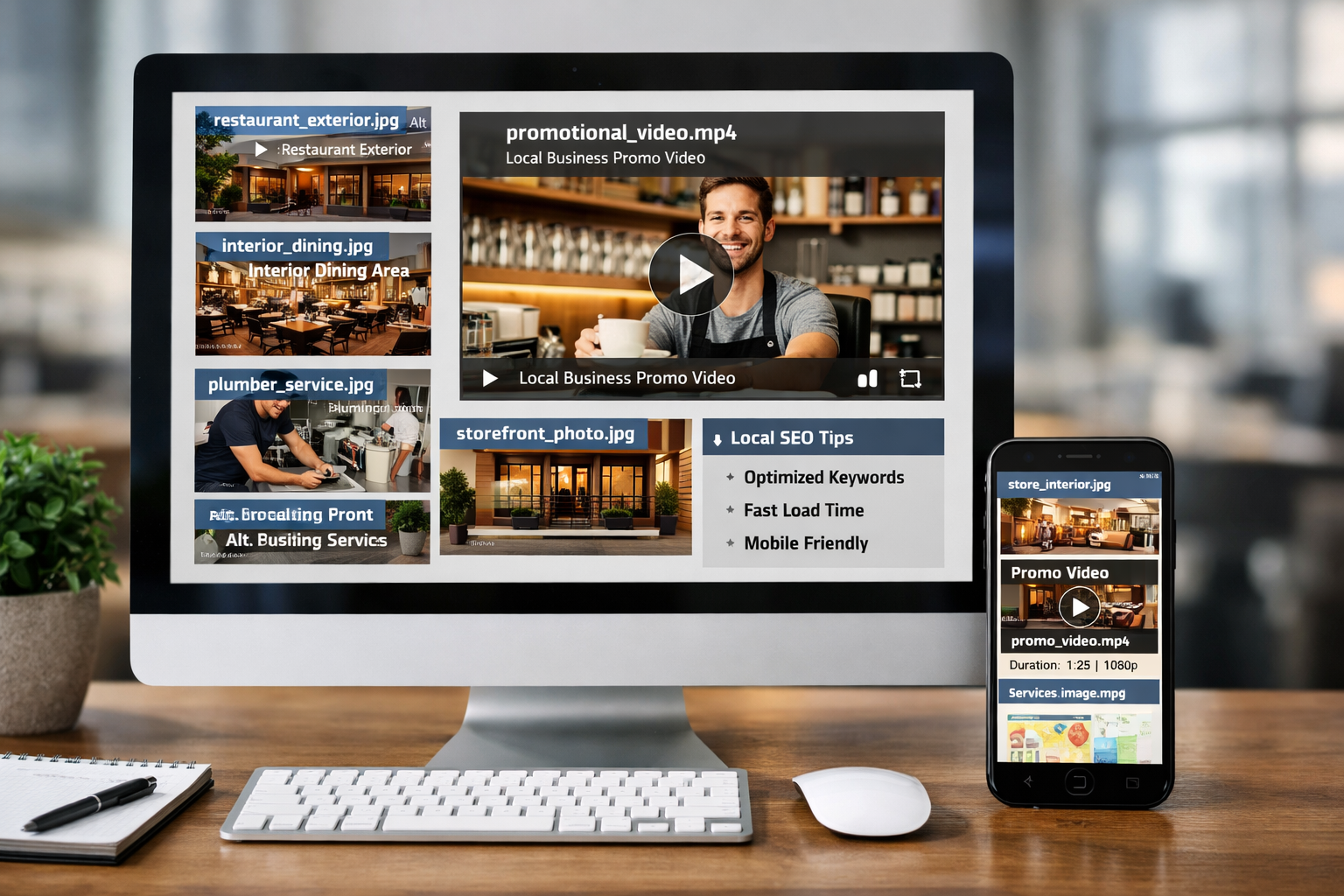How should small businesses respond to customer reviews for SEO benefit?
In today’s digital world, online reviews are far more than just opinions — they’re signals of trust, authority, and credibility. For small businesses, these reviews can directly impact not only reputation but also local SEO performance. How a business responds to customer reviews — both positive and negative — can influence search engine rankings, customer perception, and overall online visibility.
Whether you’re a local restaurant, contractor, law firm, or retail store, understanding how to handle customer feedback strategically can turn reviews into a valuable SEO asset. Let’s explore how your business can make the most of every review for long-term growth.
Why Customer Reviews Matter for Local SEO
Search engines like Google prioritize relevance, trustworthiness, and user experience when ranking local businesses. Reviews are one of the most powerful signals that influence all three.
When potential customers search for a business “near me,” Google looks at several review-related factors:
- Average rating (how customers perceive your quality)
- Review quantity and frequency (how often people are talking about you)
- Review sentiment and keywords (what customers say about your products or services)
- Owner responses (how active and engaged you are)
Responding to reviews signals to Google that your business is engaged and cares about its customers. It shows activity and transparency, both of which contribute to trust signals in search algorithms.
Additionally, well-written responses often contain natural keywords related to your business — think “plumbing repair in Atlanta” or “best coffee in downtown Philly.” These keywords reinforce local relevance, helping your business appear in related searches.
In short: your review section is an underrated SEO goldmine — if you know how to use it strategically.
The SEO Value of Responding to Positive Reviews
Positive reviews may seem simple: a customer is happy, you say thank you, and you move on. But with an SEO mindset, every positive review is an opportunity to reinforce brand authority and local relevance.
When responding to positive reviews:
- Acknowledge the customer by name (personalization helps engagement)
- Express gratitude for their business and feedback
- Reinforce your location and services subtly
- Invite future interaction
Example:
“Thanks so much, Sarah! We’re thrilled you loved our landscaping services in Chester County. Our team always enjoys helping homeowners keep their lawns beautiful. Hope to see you again this spring!”
This kind of response does two things:
- It makes the customer feel valued, encouraging repeat business.
- It includes natural local keywords (“landscaping services in Chester County”) that can improve your search visibility.
When multiplied across dozens of reviews, this adds a steady stream of localized, keyword-rich, user-generated content — one of the best ways to boost your Google Business Profile SEO.
Turning Negative Reviews into SEO Opportunities
No business enjoys getting negative reviews, but how you respond can turn a potential problem into an SEO and reputation win.
First, understand that Google values transparency and responsiveness. A well-handled negative review can actually build trust with new customers. When they see that you handle criticism professionally and seek solutions, it demonstrates accountability — something both users and search engines reward.
Here’s how to respond effectively:
- Acknowledge the issue and show empathy.
- Avoid getting defensive — stay professional and calm.
- Offer a solution or invite the customer to connect offline.
- Include service and location details if appropriate.
Example:
“We’re sorry to hear about your recent experience at our bakery in Ardmore, Lisa. We always aim to deliver fresh pastries and great service. Please reach out to us directly at [contact info] — we’d love to make this right.”
This response shows empathy, professionalism, and includes keywords (“bakery in Ardmore”) that can support local search performance. Even negative reviews can add value if handled with care and SEO awareness.
How Response Frequency Affects Local Ranking
Search engines prioritize active and responsive business listings. If your Google Business Profile or Yelp page is full of unanswered reviews, it can signal neglect — potentially lowering your visibility.
Frequent, timely responses show Google that your business is:
- Engaged with customers
- Continuously active (fresh content signals)
- Providing updated user interactions
Aim to respond to every review — positive or negative — within 48 to 72 hours. Regular engagement keeps your profile fresh, which helps maintain or improve ranking consistency in local search results.
Remember: Google wants to recommend businesses that provide great user experiences. Active engagement, seen through review responses, helps prove that your business delivers just that.
Incorporating Keywords Naturally in Review Responses
Keyword stuffing is a common SEO mistake. But when done correctly, using relevant keywords in your review replies can make a difference.
For example:
- Instead of saying: “Thanks for visiting us!”
- Try: “Thanks for visiting our dental clinic in King of Prussia!”
Here’s how to incorporate keywords strategically:
- Use your
business type and service keywords (e.g., “roof repair,” “family dentist,” “wedding photographer”).
- Add your
city or neighborhood name when relevant.
- Keep it
conversational and natural, not forced.
Avoid turning your responses into advertisements — they should sound genuine. Think of it as local storytelling. You’re reminding both Google and potential customers what your business does and where you’re located, all while being helpful and personable.
Balancing Tone: Professional Yet Personable
The tone of your review responses matters. Robotic or copy-paste replies can hurt your reputation and make you look disengaged. On the other hand, overly casual responses might feel unprofessional.
The ideal tone is friendly, authentic, and professional. Here are a few best practices:
- Use a
consistent voice that matches your brand personality.
- Personalize responses whenever possible.
- Avoid
generic templates like “Thank you for your feedback.”
- Keep replies
short but meaningful (2–4 sentences is usually perfect).
Example:
“Hi Mike! Thanks for trusting our team to paint your home in Bryn Mawr. We’re thrilled you loved the results — your satisfaction means everything to us!”
That tone feels warm, specific, and trustworthy — exactly what customers (and algorithms) like to see.
Leveraging Review Responses Across Platforms
While Google reviews carry the most SEO weight, your business should also maintain consistent engagement across Facebook, Yelp, TripAdvisor, and industry-specific sites.
Why this matters:
- Google cross-references business data across platforms for ranking accuracy.
- Consistency in tone and responsiveness builds credibility.
- Reviews on third-party sites can show up in search results, amplifying your visibility.
To maximize SEO impact:
- Use a
centralized system (like GetPhound’s digital marketing management tools) to monitor reviews.
- Respond consistently — even if it’s just a brief thank-you.
- Encourage customers to leave reviews on
multiple platforms, not just one.
Cross-platform engagement demonstrates that your business is active and trustworthy everywhere it appears online — another signal that can boost your local search authority.
Encouraging More Reviews the Right Way
The more genuine reviews your business earns, the better your SEO results will be. But it’s important to encourage reviews ethically — without violating platform guidelines.
Effective ways to get more reviews:
- Ask at the right time — after a successful transaction or positive interaction.
- Make it easy — share direct review links in follow-up emails or texts.
- Personalize the request — mention specific services or experiences.
- Never offer rewards or incentives — this violates Google’s policies.
Example request message:
“Thanks for choosing [Business Name]! We’d love to hear your feedback — it helps us grow and helps other customers find us. You can share your experience here: [link].”
Once you start receiving more reviews, commit to responding to all of them. Each response further strengthens your SEO strategy by keeping your profiles active and content-rich.
Using Review Insights to Improve SEO and Service
Beyond responding, reviews provide valuable insight into how customers perceive your business. By analyzing common themes or keywords in your feedback, you can identify what’s working — and what needs improvement.
For example:
- If multiple customers mention “fast delivery,” consider adding that phrase to your website copy.
- If they highlight a specific product or service, feature it more prominently online.
- Use recurring language from customer reviews as
SEO content inspiration for your blog, FAQ pages, or service descriptions.
These insights not only improve your website’s content relevance but also ensure your SEO aligns with what customers actually value.
Moreover, acting on feedback shows customers you’re listening — another trust signal that drives loyalty and positive engagement.
Automating and Managing Review Responses Effectively
For many small businesses, managing reviews can feel overwhelming. That’s where automation and professional support come in.
Modern tools like those offered by GetPhound can help:
- Monitor all review platforms in one dashboard.
- Send alerts when new reviews are posted.
- Preload personalized templates for common scenarios.
- Track sentiment trends to identify improvement areas.
Automation ensures you never miss a review while maintaining a consistent, professional tone. However, balance automation with human oversight — personalize responses whenever possible to keep your brand’s voice authentic and relatable.
When done right, a well-managed review system strengthens your local SEO, enhances your reputation, and saves valuable time.
Building a Long-Term Review Strategy for SEO Growth
Responding to reviews shouldn’t be a one-time effort — it’s an ongoing strategy that compounds over time.
A strong long-term plan includes:
- Regularly asking for feedback after every customer interaction.
- Tracking response times and engagement rates.
- Training your team on proper tone and keyword use.
- Reviewing analytics quarterly to see how responses impact rankings.
Your goal is to turn your review section into a living portfolio — proof of consistent quality, responsiveness, and customer care.
When search engines see your business consistently earning and engaging with reviews, they reward you with greater visibility. Over time, that leads to more clicks, calls, and conversions.
Turning Conversations Into Conversions
Every customer review is a conversation — and every conversation is an opportunity to rank higher, build trust, and drive more business.
When small businesses approach reviews strategically, they transform what’s often seen as a reputation chore into a powerful SEO advantage. From including localized keywords to maintaining a consistent, personable tone, every thoughtful response adds long-term value to your online presence.
If your business wants to take full advantage of customer reviews for SEO growth, GetPhound can help. Our team specializes in local SEO, reputation management, and digital marketing strategies that help small businesses stand out where it matters most — online.
Start turning your reviews into results today at https://getphound.com/.











